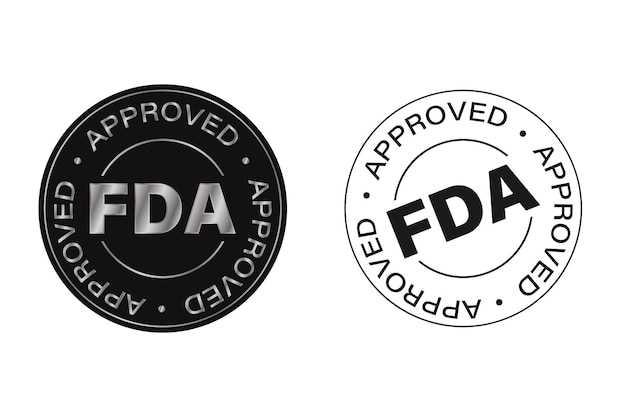
Reduce cholesterol and protect your heart with Atorvastatin!
Are you at risk of heart disease or high cholesterol levels? FDA has issued an important alert regarding the use of Atorvastatin, a powerhouse medication that can help improve your cardiovascular health.
Atorvastatin is an FDA-approved medication that effectively lowers cholesterol levels in the body. By reducing the amount of bad cholesterol (LDL) and triglycerides while increasing good cholesterol (HDL), Atorvastatin plays a vital role in maintaining a healthy heart.
Why should you choose Atorvastatin?
1. Proven Results: Clinical studies have shown that Atorvastatin can significantly lower LDL cholesterol levels by up to 50% and reduce the risk of heart attacks, strokes, and other cardiovascular events.
2. Safety: Atorvastatin is a safe and well-tolerated medication, prescribed by doctors worldwide to millions of patients to effectively manage their cholesterol levels.
3. Convenience: With Atorvastatin, you only need to take a single tablet once a day to maintain healthy cholesterol levels. It is easy to incorporate into your daily routine.
Don’t wait! Take control of your heart health today. Ask your doctor about Atorvastatin.
Disclaimer: This advertisement is for informational purposes only. It is not intended to be a substitute for professional medical advice, diagnosis, or treatment. Always seek the advice of your physician or other qualified health provider with any questions you may have regarding a medical condition.
Overview of Fda Alert Atorvastatin
One of the crucial aspects of the Fda Alert Atorvastatin is understanding the reasons for concern. Atorvastatin is a medication used to lower cholesterol levels and reduce the risk of heart disease. However, recent FDA alerts have highlighted potential safety risks associated with its use.
The concerns primarily revolve around adverse side effects that may occur as a result of taking atorvastatin. These side effects can range from mild to severe and may include muscle pain, weakness, and liver problems. It is important to be aware of these risks and take appropriate safety measures.
In addition to the potential side effects, there are also health risks associated with atorvastatin use. For example, some individuals may be at an increased risk of developing diabetes or experiencing cognitive impairment. These risks further emphasize the need for caution when using this medication.
Fortunately, there are safety measures that can be taken to minimize the risks associated with atorvastatin. It is recommended to regularly monitor liver function and seek medical attention if any unusual symptoms occur. It is also important to inform healthcare professionals of any other medications being taken to avoid potential drug interactions.
Based on the FDA alerts, it is advisable to use atorvastatin under the guidance of a healthcare professional. They can provide personalized recommendations for use based on individual health conditions and determine the appropriate dosage. Regular consultation with healthcare professionals can help monitor the effectiveness and safety of atorvastatin use.
Reasons for Concern
When it comes to taking any medication, it’s important to consider the potential side effects and risks. Atorvastatin, a medication approved by the FDA for treating high cholesterol, is no exception. While many people have found atorvastatin to be effective in managing their cholesterol levels, it’s crucial to be aware of the potential adverse side effects that can occur.
Possible Adverse Side Effects
Atorvastatin may cause a range of adverse side effects that vary in severity. These side effects can include:
| Common Side Effects | Less Common Side Effects | Rare Side Effects |
|---|---|---|
| Fatigue | Memory loss | Rhabdomyolysis |
| Muscle pain | Dizziness | Liver problems |
| Headache | Insomnia | Severe allergic reaction |
| Nausea | Changes in taste | Diabetes |
| Stomach pain | Difficulty breathing |
It’s important to note that not everyone will experience these side effects, and some people may experience different side effects not listed here. However, if you notice any unusual or severe side effects while taking atorvastatin, it’s crucial to seek medical attention immediately.
Adverse Side Effects:
When taking atorvastatin, it is important to be aware of the potential adverse side effects that may occur. While not everyone experiences these side effects, it is important to recognize them for a better understanding of the medication and its potential effects on your health.
Some common adverse side effects of atorvastatin include:
| 1. Muscle pain or weakness | 6. Skin rash or itching |
| 2. Joint pain or stiffness | 7. Stomach pain or cramps |
| 3. Difficulty swallowing | 8. Nausea or vomiting |
| 4. Hoarseness or voice changes | 9. Dark urine or pale stools |
| 5. Fatigue or weakness | 10. Yellowing of the skin or eyes |
If you experience any of these side effects while taking atorvastatin, it is important to consult with your healthcare professional. They can provide guidance and determine if any adjustments need to be made to your medication.
Remember, this list of adverse side effects is not exhaustive. If you experience any other unusual symptoms or discomfort while taking atorvastatin, it is always best to consult with your healthcare professional for further evaluation.
Health Risks
When taking atorvastatin, there are potential health risks that you should be aware of. It is important to understand these risks to make an informed decision about your treatment.
1. Liver Damage: Atorvastatin can cause liver damage in some individuals. It is important to monitor liver function regularly while taking this medication. If you experience symptoms such as yellowing of the skin or eyes, dark urine, or abdominal pain, you should seek medical attention immediately.
2. Muscle Problems: Some individuals may develop muscle problems while taking atorvastatin, such as muscle pain, weakness, or tenderness. These symptoms may be a sign of a serious condition called rhabdomyolysis, which can lead to kidney damage. If you experience any muscle problems, contact your healthcare professional right away.
3. Diabetes Risk: Atorvastatin has been associated with an increased risk of developing diabetes, especially in individuals who have certain risk factors such as high blood sugar levels or a family history of diabetes. Regular monitoring of blood sugar levels is recommended while taking atorvastatin.
4. Memory and Cognitive Impairment: In rare cases, atorvastatin use has been linked to memory loss and cognitive impairment. If you experience any changes in your memory or thinking abilities, consult your healthcare professional.
It is important to note that these health risks are relatively rare and that the benefits of atorvastatin in reducing cholesterol and lowering the risk of heart disease generally outweigh the potential risks. However, it is crucial to discuss any concerns or symptoms with your healthcare professional.
Safety Measures
When using Atorvastatin, it is important to take certain safety measures to ensure your well-being and minimize potential risks. Here are some guidelines to follow:
1. Follow Prescribed Dosage

Take Atorvastatin exactly as prescribed by your healthcare professional. Do not increase or decrease the dosage without consulting your doctor.
2. Store Properly
Keep Atorvastatin in a cool, dry place away from direct sunlight and moisture. Store the medication out of reach of children and pets.
3. Be Aware of Drug Interactions
Inform your doctor about any other medications, vitamins, or herbal supplements you are currently taking. Atorvastatin may interact with certain drugs and cause adverse effects.
4. Report any Unusual Symptoms
If you experience any unusual symptoms or side effects while taking Atorvastatin, such as muscle pain, weakness, or jaundice, contact your healthcare professional immediately.
5. Follow a Healthy Lifestyle
While taking Atorvastatin, it is important to follow a healthy lifestyle. Maintain a balanced diet, engage in regular exercise, and avoid excessive alcohol consumption.
6. Regular Check-ups
Attend regular check-ups with your healthcare professional to monitor your cholesterol levels and overall health. Regular monitoring can help identify any potential issues and allow for timely adjustments to your treatment plan.
By following these safety measures, you can ensure the effective and safe use of Atorvastatin while minimizing any potential risks and complications. Always consult with your healthcare professional for personalized advice and guidance.
| Disclaimer: |
|---|
| This information is provided for informational purposes only and should not be used as a substitute for professional medical advice. Always consult with your healthcare professional before starting any new medication. |
Recommendations for Use
When using atorvastatin, it is important to follow the recommended guidelines to ensure its proper and safe use. Here are some recommendations to keep in mind:
1. Dosage

Take atorvastatin exactly as prescribed by your healthcare professional. Follow the recommended dosage instructions provided by your doctor or pharmacist. Do not exceed the prescribed dose unless instructed by your healthcare provider.
2. Timing
Take atorvastatin at the same time every day to maintain a consistent level of the medication in your body. This will help maximize its effectiveness.
3. Food Interactions
Atorvastatin can be taken with or without food. However, it is recommended to take it with food as it may help improve absorption and reduce the likelihood of experiencing gastrointestinal side effects.
4. Alcohol Consumption
Avoid excessive alcohol consumption while taking atorvastatin. Alcohol can increase your risk of experiencing liver problems and may interfere with the effectiveness of the medication.
5. Grapefruit Juice
Avoid consuming grapefruit juice while taking atorvastatin. Grapefruit juice can interact with the medication and increase the risk of experiencing side effects.
6. Regular Monitoring
Regularly monitor your cholesterol levels and liver function as recommended by your healthcare professional. This will help ensure the effectiveness of the medication and detect any potential adverse effects.
7. Inform Your Healthcare Provider
Inform your healthcare provider about any other medications, supplements, or herbal remedies you are taking, as they may interact with atorvastatin. Your healthcare provider can help assess any potential drug interactions and recommend appropriate adjustments.
8. Follow-up Appointments
Maintain regular follow-up appointments with your healthcare professional to monitor your progress and discuss any concerns or questions you may have. This will help ensure that atorvastatin is working effectively for you.
| Important Notes | |
|---|---|
| 1. | Do not stop taking atorvastatin without consulting your healthcare provider, even if you feel better. Stopping the medication abruptly can lead to a sudden increase in cholesterol levels. |
| 2. | If you experience any unusual or severe side effects while taking atorvastatin, contact your healthcare provider immediately. |
By following these recommendations, you can help ensure the safe and effective use of atorvastatin for managing your cholesterol levels.
Consultation with Healthcare Professionals
When it comes to your health, it’s always important to consult with healthcare professionals. If you have any concerns or questions regarding the FDA alert regarding atorvastatin, it is crucial to seek advice from your doctor or pharmacist.
Healthcare professionals can provide you with the necessary information and guidance to make an informed decision about your medication. They can explain the risks and benefits of atorvastatin, as well as help you understand any potential adverse side effects.
Your healthcare provider will take into consideration your medical history, current medications, and overall health before recommending the use of atorvastatin or suggesting alternative treatments. They can also monitor your progress and adjust your medication dosage if needed.
During your consultation with healthcare professionals, be sure to share any relevant information about your health, including any allergies or previous adverse reactions to medications. It’s essential to have an open and honest discussion to ensure the best and safest treatment plan for you.
Remember, your healthcare provider has your best interests in mind, and they are there to help you. Don’t hesitate to reach out to them if you have any concerns or questions about atorvastatin or any other medications you are taking.
| Benefits of Consultation with Healthcare Professionals |
|---|
|
